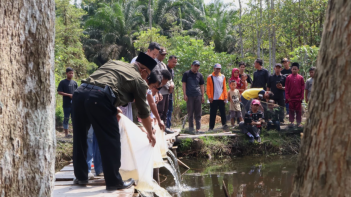Three hundred youth from China, India, Indonesia, Malaysia and Singapore gathered virtually at the second Asian Youth for Sustainable Palm Oil (AYSPO) Summit in October, to engage in discussions to promote responsible consumption for a sustainable future.
The Asian youth delegates highlighted various issues arising from unsustainable palm oil practices and the impact this has had on some of their home countries. In their joint statement, they said that education and awareness are at the centre for driving consumer demand for sustainable palm oil. Therefore, they will help educate and create higher awareness among students in schools and universities, in an effort to increase the demand for sustainable palm oil products.
As part of the palm oil supply chain, Asian youth are aware that their role as consumers and future decision makers is crucial for influencing market transformation. They also said they are committed to making more ethical consumption choices, and are willing to pay more for sustainably produced and sourced palm oil products.
According to the youth delegates, “This is the ‘decade of action’ and it calls for accelerating sustainable solutions for the world’s biggest challenges – ranging from poverty and gender inequality to climate change, and closing the income gap. With just 10 years to go, an ambitious global effort should be underway to deliver the 2030 promise by mobilising more governments, civil society organisations, and businesses, and calling on all youth to make the Global Goals their own.”
One of the speakers at the Summit, the Executive Director of the Peoples’ Movement to Stop Haze (PM Haze), Benjamin Tay, said that the transboundary haze issue is a big concern for the Southern and Southeast Asian region. “Smoke from forest and land fires in Indonesia and other countries travels far and wide, posing serious health risks to the population. The effects of haze are fairly well documented and eateries in Singapore have seen a drop of up to 90% in patrons during the haze season,” said Benjamin.
Another speaker, Songqiao Yao, who is the Founder of Wildbound, shared their new programme ‘Changemakers for Nature’, with the participants. It was launched in China recently to inspire sustainability leadership and the authentic creative spirit of each individual, through experiential education.
“As Asian youth represent one of the largest consumer demographics in the world, it is an opportunity for them to use their purchasing power to vote and to nudge businesses, governments, and other stakeholders to put an end to deforestation and exploitation. Next year, RSPO plans to scale up our work with youth ambassadors and influencers in Asia to encourage brands and consumers to demand more sustainable palm oil,” said RSPO’s India Representative, Kamal Prakash Seth.
For more information on the AYSPO 2020 Summit, or future youth-focused initiatives, kindly contact Kamal Prakash Seth at [email protected].
Keep reading

Rowo Ombo: From Neglected Swamp to a Symbol of Hope and Conservation in Jambi, Indonesia

Save the Date: The 22nd General Assembly (GA22) of RSPO Members

Access into prisma

10 Years of RSPO in China: Driving Palm Oil Transformation Towards Sustainability

Updated Trace Function in prisma

Call for Expression of Interest: Independent Investigation of a Complaint

Latin American Smallholders, Key Global Brands Gather in Peruvian Amazon to Advance Sustainable Palm Oil

RSPO Forum for Members and Certification Bodies 2025: Strengthening Capacities and Building Bridges with RSPO Members




